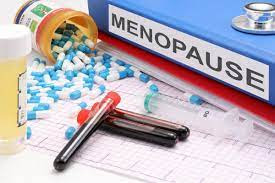When a company decides to create a hair loss supplement, shampoo conditioner combo, or other product, one of the first decisions they make is how to approach the problem of hair loss. The cause could be due to a variety of circumstances, depending on the individual
A dietary pattern that includes too much oily or sugary processed food might cause hair loss. Hair loss can sometimes be passed down down the generations, involving genetic heritage from parents and grandparents. Men and women experience hair loss in different ways.
One of the reasons we appreciate Provillus is that it's a hair cream/supplement combination designed exclusively for ladies.
Women normally don't start losing their hair until they are 40 or 45 years old. When compared to men who can see thinning as early as 30, this provides a different physiology.
Different typical components present in hair loss remedies can be negated or distorted as a result of hormonal changes associated with menopause.
What matters is what's on the inside.
A topical hair loss remedy is unlikely to include the same chemicals as an orally consumed one, so receiving two treatments at once that are designed to complement each other is a significant bonus.
Biotin, Minoxidil, and Para-amino benzoic acid are among the constituents in Provillus Hair Cream, which when absorbed through the scalp aid to prevent and reverse hair loss.
The B vitamins, zinc, and herbal extracts like saw palmetto and stinging nettle in the Provillus Hair Regrowth Supplement serve to combat malnutrition and stimulate the production of elements that are important for keeping and regrowing healthy hair when taken orally.
A boost in vital hair-health nutrients, as well as improved hormone management, are two ways it accomplishes this. An imbalance of testosterone, estrogen, and a variety of other hormones can also cause hair loss.
Provillus helps prevent the body from creating dyhdryotestosterone, which is a known cause of hair loss. This is especially important for women who, for a variety of reasons, do not have much reason to use testosterone.
Hair loss is a multibillion-dollar business. While there are so many possibilities, it's easy to become overwhelmed when attempting to find the correct product for someone who already has low confidence and self-esteem due to hair loss or pattern baldness.
Provillus is an excellent choice because it saves the customer time and effort when it comes to studying and picking a topical application as well as a supplement. Who knows, maybe they would have had to choose between the two.
It's a quick and easy technique to get a girl's hair back on her head and a grin back on her lips!
The Provillus Hair Cream and Supplement are designed to be used in tandem to help prevent and even reverse hair loss.
Provillus has a well-designed website where you can learn more about the company and make a secure, well-informed purchase. Provillus can only be purchased through their website. Over the last five years, customer feedback has been overwhelmingly positive. Some say it takes a while to start operating, but it appears to work most of the time.


